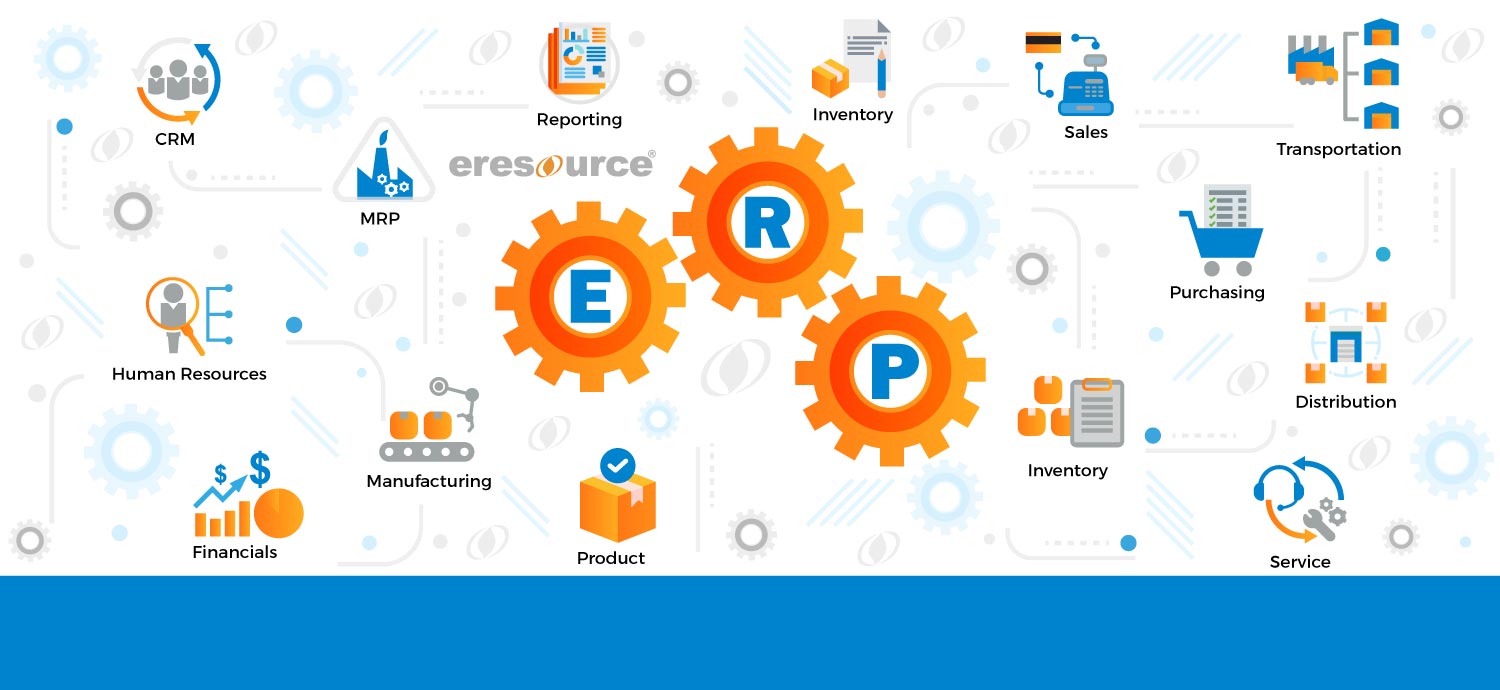ERP systems are becoming more and more popular among businesses worldwide as a more affordable option to software programs. However, the expensive cost of implementing this wonderful technology keeps small and mid-size businesses from making use of ERP’s enormous benefits. Since eresource ERP released its low-cost, reasonably priced ERP, a large number of mid-market companies have also begun to use this most recent technology to manage their operations efficiently.
With all of the essential components of managing a manufacturing firm, eresource Xcel ERP software ought to give an organization a strong basis. When a firm implements an ERP package, there are great expectations since, if the solution is a good fit, the company can save lots of money and receive improved services.
With the implementation of eresource Xcel ERP system in manufacturing companies, production scheduling is controlled more effectively, manual operations are automated, and inventory is evaluated more precisely. Furthermore, it is now possible to measure corporate success in a far more comprehensive way than in the past. Executives can now see all business operations in real-time, which helps them make more informed strategic decisions. In summary, a mid-market business can compete more fiercely in international markets if it has the appropriate ERP software.
Also Read – ERP for Automotive Manufacturing Industry
ERP system deployment can lower expenses
This ERP system deployment can lower expenses in three main areas, per a survey: inventory costs, factory operating costs, and administrative costs. The survey’s best-in-class participants reported a reduction in inventory costs of 21%, operational expenses for manufacturing of 17%, and administrative costs of 16%. The average reductions made by the respondents were 11%, 8%, and 9%, in that order.
eresource Xcel ERP for the Manufacturing industry offers numerous advantages that go beyond obvious cost savings because it is involved in every facet of managing a company. It can enhance a company’s ability to solve problems quickly and provide excellent customer service. It can resolve interoperability problems between several manufacturing facilities. It can expedite and standardize production procedures across all of a company’s production facilities.
It can expedite the order fulfillment procedures used by manufacturers. It can make it easier to connect to the enterprise systems of suppliers and partners. The system can even assist a company in staying in compliance with legal requirements pertaining to employment and the environment.
Numerous distinct business-specific benefits are shown by case studies conducted on eresource ERP systems. According to one of the case studies, a manufacturer of travel accessories replaced outdated systems with our ERP package, which resulted in a 30 percent decrease in inventory levels, a 38 percent decrease in warehouse space requirements, a five-day improvement in month-end close procedures, a 44 percent decrease in days sales outstanding, and a 100% increase in sales without the need for hiring more staff.
Also Read – ERP for Chemical Manufacturing Industry
eresource Xcel is much more than just an ERP
Many large manufacturing firms have chosen to employ this widely used tool that has changed over the past few decades in the competitive environment of today. eresource Xcel ERP provides the manufacturing and service industries with the “answer” to their problems with productivity and the economy. As a result, this ERP system has gained a lot of popularity as a tool for enterprise administration.
When the system was first coined, it described the organizational-wide resource utilization that a major organization intended to do. ERP systems were previously employed by larger, more industrialized businesses. Nonetheless, the word ERP is now used to describe any kind of business, regardless of the industry, and its application has expanded greatly. In actuality, eresource ERP systems are employed by practically all sizes of organizations.
eresource ERP systems are capable of integrating many different tasks into a single, cohesive database. For example, once stand-alone software applications with their own database and network, functions like human resources, supply chain management, customer relations management, financial, manufacturing, and warehouse management can now be consolidated under one roof.
Also Read – Road Construction Software
The performance of every component of an enterprise affects its overall performance outcomes, much like in any integrated system or unit. In particular, we may state that an ERP environment’s cumulative performance will be 75% if 95% of the critical business elements—item master, bills of materials, production master schedule adherence, inventory accuracy, production orders accuracy, and purchase order accuracy—perform independently. This represents a hypothetical failure rate as a proportion of productivity.
This is the point where we ought to endorse and integrate this practical instrument with an operational plan predicated on the intended administrative inclination or theory.
In light of this, it is crucial to consider administration issues before selecting an ERP program; regardless of the management style you ultimately select, you must possess a firm grasp of ERP methodology and sound administration concepts.
This will result in cross-functional synergy, enabling firms to have consistently successful, highly productive processes. You can only be guaranteed to get the greatest outcomes and be prepared to confront and proactively address any roadblock you may encounter by developing a thorough understanding of this mindset. Your efforts will not provide the desired outcomes if you do not have this point of reference.
For more details about the functioning of ERP for Manufacturing and a live demo, please get in touch with us now info@eresourceinfotech.com
Also Read – Construction ERP Software
Categories
Register for Free Demo!
Recent Post
-

eresource ERP 360 - an
11th Apr 2019 -

A competitive ERP system for
17th Apr 2019 -

Auto components manufacturing industry has
17th Apr 2019 -

Make the best use of
17th Apr 2019







